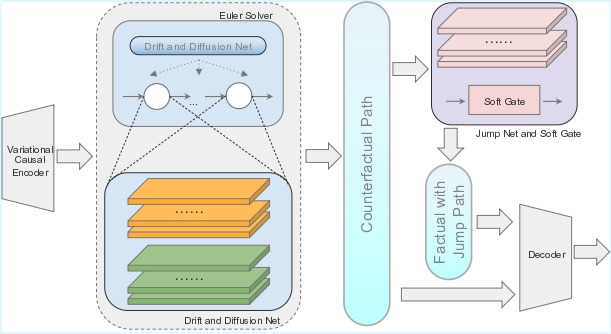Publications & Competitions
Academic publications and Kaggle competition solutions with open source code. Click-through to check out the work in more detail.
Publications
Working Papers
"Martingale PAC-Bayes for Time Series Forecasting"
In Progress
"Causal Bayesian Optimization: Foundations, Methods, and Applications"
In Progress
2026
"Confidence-Based Handover for Causal Bayesian Optimization with Adaptive Expert Trust"
Under Review
Causal Bayesian Optimization (CBO) has emerged as a powerful paradigm for decision-making under uncertainty, effectively leveraging causal structures to guide interventions. However, existing CBO methods do not adequately integrate domain-specific expertise, potentially leading to inefficient exploration and suboptimal outcomes in real-world applications involving complex human decision-making and economic considerations. To bridge this gap, we propose Expert-guided Causal Bayesian Optimization (ECBO), a framework that integrates human expert knowledge into the CBO process. We introduce an expert weighting mechanism that adaptively modulates the Expected Improvement (EI) acquisition function, reflecting expert endorsements or exclusions of candidate solutions. By embedding these expert-derived preferences, our model proactively balances exploration and exploitation. Additionally, we implement a robust harm-free mechanism to guard against potentially detrimental expert interventions, alongside an adaptive trust parameter that dynamically adjusts expert influence based on observed discrepancies. Our experimental results underscore the practical value of effectively incorporating expert knowledge in complex causal environments.
"A Causal Perspective on Jump-Diffusion for Time-Series Anomaly Detection"
Under Review

Time series anomaly detection is essential for maintaining robustness in dynamic real-world systems. However, most existing methods rely on static distribution assumptions, while overlooking the latent causal structures and structural shifts that underlie real-world temporal dynamics. This often leads to poor explanation of anomalies and misclassification of environment-induced variations. To address these shortcomings, we propose Causal Soft Jump Diffusion Anomaly Detection (CSJD-AD), a novel framework that models both latent dynamics and soft-gated expected jumps through a structural jump diffusion process. We adopt a causal perspective grounded in environment-conditioned invariance by inferring discrete environment states and conditioning the jump-augmented process on them, yielding a practical detector for unlabeled sensor streams without aiming to identify true interventions. By generating paired counterfactual and factual trajectories, the model explicitly contrasts causally consistent behavior with unexplained deviations. Our method achieves state-of-the-art performance across benchmark datasets, demonstrating the importance of incorporating causal reasoning and jump-aware dynamics into time series anomaly detection.
2025
"Effective Series Decomposition and Components Learning for Time Series Generation"
ICDM 2025

We introduce STDiffusion, a generative framework for time series that explicitly
decomposes each sequence into trend, seasonal and stochastic components. A
lightweight decomposition module produces component-wise representations; dedicated
component learners capture long-term trend and periodicity, while a diffusion
backbone models residual innovations conditioned on those components. This design
yields faithful, structure-aware samples and enables controllable generation and
augmentation for downstream forecasting tasks. The figure on the left shows the
overall architecture.
Competitions
Data Mining: Child Mind Institute Detect Behavior with Sensor Data
...
Developed a top 1% silver-medal solution for the Kaggle CMI-DBSD competition by designing a multimodal time-series model with CNN+SE, physics-inspired IMU features, and subject-level Hungarian assignment
Data Mining: Child Mind Institute Problematic Internet Use
...
Developed a top 3% silver-medal solution for the Kaggle CMI-PIU competition by integrating tabular and time-series features,
training tree-based regressors with cross-validation, and optimizing thresholds to maximize Quadratic Weighted Kappa.
Large Language Model: MAP - Charting Student Math Misunderstandings
...
Developed a top 5% silver-medal solution for the Kaggle MAP competition by training LLM models with LoRA, using family prefix filtering and cross-model consistency weighted ensemble to improve accuracy.